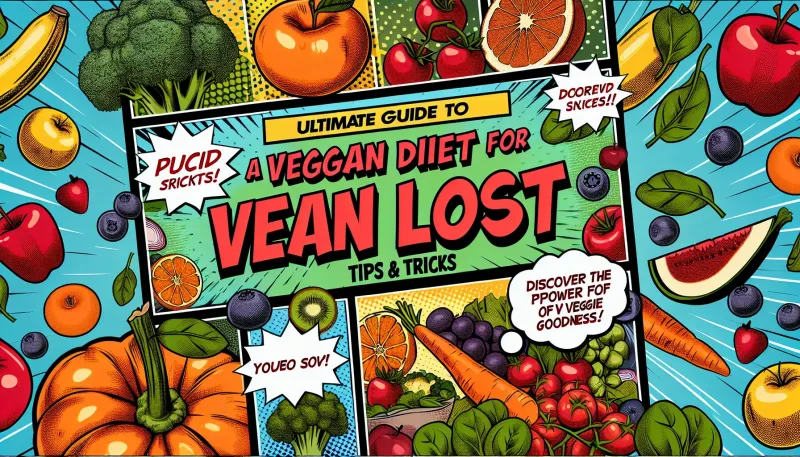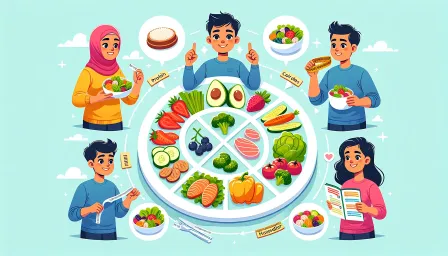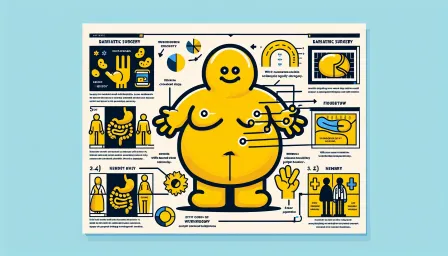Ultimate Guide to Vegan Diet for Fat Loss: Tips and Tricks

Discover the ultimate guide to a vegan diet for fat loss. Learn tips, tricks, and strategies to effectively lose fat while following a plant-based diet.
A vegan diet is often celebrated for its numerous health benefits. However, one of its underrated advantages is the potential for fat loss. In this comprehensive guide, we delve into effective strategies, practical tips, and essential information to help you achieve your fat loss goals on a vegan diet.
Understanding the Basics of a Vegan Diet
A vegan diet eliminates all animal products, focusing solely on plant-based foods. This includes vegetables, fruits, grains, nuts, seeds, and legumes. Plant-based diets are rich in essential nutrients and often lower in calories, making them conducive to fat loss.
Nutrient Density Over Caloric Density
One critical aspect of a vegan diet for fat loss is focusing on nutrient-dense foods rather than calorically dense foods. Nutrient-dense foods are high in vitamins, minerals, and other beneficial nutrients, but low in calories. These foods help to keep you full and satisfied while reducing your overall caloric intake.
Key Tips for Fat Loss on a Vegan Diet
1. Prioritize Protein
Protein is essential for fat loss as it boosts metabolism and helps preserve muscle mass. Incorporate plant-based protein sources such as tofu, tempeh, lentils, chickpeas, quinoa, and hemp seeds into your meals.
2. Control Portions
Even plant-based foods can contribute to weight gain if consumed in excessive amounts. Be mindful of portion sizes, especially when eating high-calorie foods like nuts, seeds, and avocados.
3. Eat Plenty of Fiber
Fiber helps you stay full for longer and aids in digestion. Vegetables, fruits, whole grains, and legumes are excellent sources of fiber that should be staples in a vegan diet for fat loss.
4. Stay Hydrated
Water is crucial for metabolism and overall health. Drinking ample water can prevent overeating and help your body efficiently process nutrients.
5. Avoid Processed Vegan Foods
Many vegan processed foods, like vegan junk food, can be high in calories, sugars, and unhealthy fats, which counteract your fat loss goals. Focus on whole, minimally processed foods instead.
Sample Meal Plan for a Vegan Diet for Fat Loss
Breakfast
A smoothie made with spinach, banana, berries, and a scoop of plant-based protein powder.
Lunch
Quinoa salad with mixed vegetables, chickpeas, and a lemon-tahini dressing.
Snack
Apple slices with almond butter.
Dinner
Stir-fried tofu with mixed veggies served over brown rice.
Snack
Carrot sticks and hummus.
The Role of Exercise in Fat Loss
Exercise complements a vegan diet in achieving fat loss. Incorporate both cardio and strength training into your routine. Cardio helps burn calories, while strength training builds muscle, which increases your resting metabolic rate.
Effective Exercises for Fat Loss
Include activities such as running, cycling, swimming, and high-intensity interval training (HIIT) for cardio. For strength training, focus on bodyweight exercises, resistance bands, and weightlifting.
Common Pitfalls and How to Avoid Them
Overeating Healthy Foods
While nuts, seeds, and plant-based oils are healthy, they are also calorie-dense. Monitor your consumption to avoid sabotaging your fat loss efforts.
Relying on Processed Foods
Vegan does not always mean healthy. Avoid over-reliance on processed vegan options and aim for whole foods.
Not Getting Enough Protein
Ensure you are getting sufficient protein from plant-based sources to support muscle maintenance and fat loss.
Myths About Vegan Diets for Fat Loss
Myth 1: Vegan Diets Don't Provide Enough Protein
Fact: There are plenty of plant-based protein sources that can meet your daily requirements.
Myth 2: You Can't Build Muscle on a Vegan Diet
Fact: With adequate protein and strength training, you can build muscle just as effectively on a vegan diet.
Myth 3: Vegan Diets Are Always Low in Calories
Fact: While many vegan foods are low in calories, some can be quite calorie-dense. It's essential to monitor your intake.
Conclusion
Adopting a vegan diet for fat loss can be highly effective if done correctly. Focus on nutrient-dense, whole foods, prioritize protein, control portions, and incorporate regular exercise into your routine. By doing so, you can achieve your fat loss goals while enjoying the health benefits of a plant-based lifestyle.



























